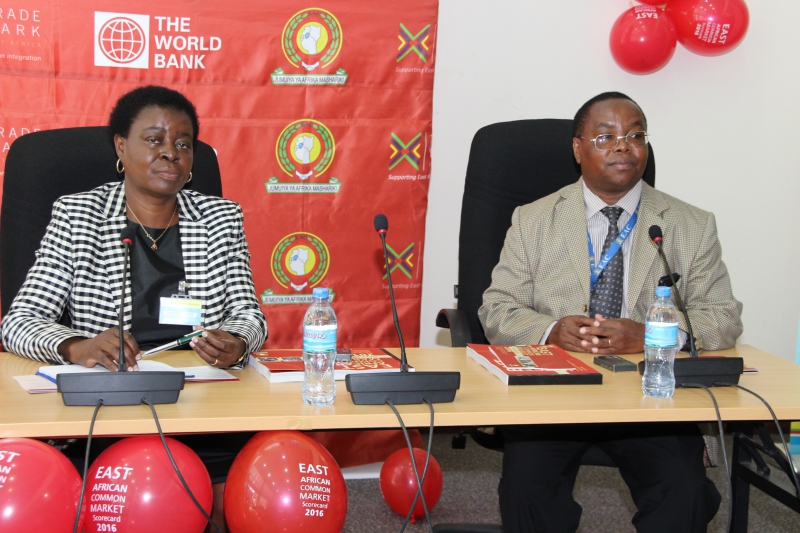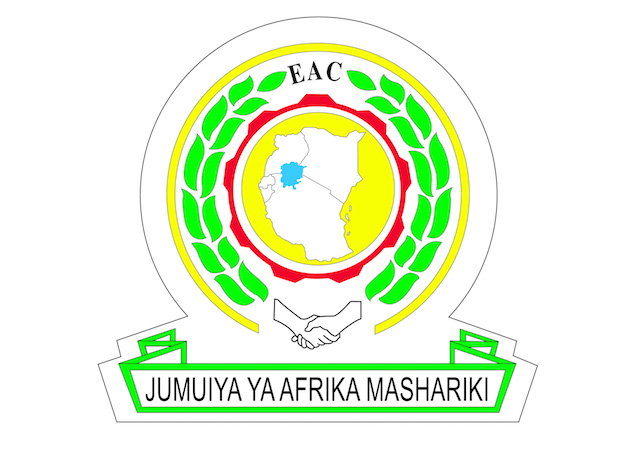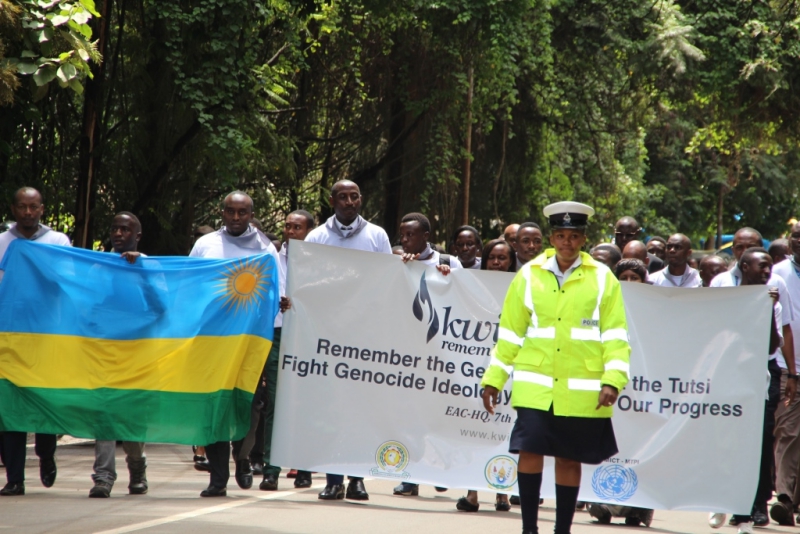
EAC Partner States Undertaking Reforms in Implementation of the Common Market Protocol
East African Community Secretariat; Arusha, Tanzania; 21 April 2017:
The East African Community Partner States have undertaken a number of reforms over the past four years to facilitate implementation of the EAC Common Market Protocol, this is according to the East African Common Market Scorecard (CMS 2016).
The Scorecard, which is published by the World Bank, says that Partner States have implemented significant reforms in the free movement of Capital, Goods and Services that are enshrined in the Common Market Protocol (CMP).
The CMS 2016, however, notes that there is still cause for concern as numerous barriers remain in all the three areas. Also worrying, according to the Scorecard is the fact that new measures have been implemented that hinder regional trade and investment.
The Scorecard indicates that in the case of free movement of goods, Non-tariff Barriers (NTBs) which often emerge when tariffs have been eliminated – have been addressed more quickly during the 2016 reference period than during the 2014 period falling from an average of 34 to eight (8) months per NTB.
With respect to the free movement of capital, three Partner States – Kenya, Tanzania and Uganda – have undertaken a total of 11 reforms including measures that enhance the region’s securities capacities by adding a framework for trading in derivatives in Kenya and Uganda.
The findings were revealed during a two-day dissemination workshop on EAC Common Scorecard 2016 that was held at the EAC Headquarters in Arusha, Tanzania. The World Bank team was led by Ms. Jean Lubega-Kyazze, Senior Private Sector Specialist, while the Director of Planning, Mr. Wilberforce Mariki, represented the EAC Secretary General.
The report observes that Kenya undertook three reforms but added one restriction; Tanzania and Rwanda each eliminated one Non-conforming Measure (NCM). It adds that Uganda also had one reform but added one restriction.
Under the CMP, Partner States committed to liberalize 20 capital market operations. However, at the end of December 2015, the reference period for CMS 2016, only two (2) of these 20 operations were free in all Partner States showing no improvement since 2014.
Eleven (11) reforms have been undertaken since the publication of CMS 2014, all in the securities area, notes the report.
Since the publication of the 2014 CMS, both Kenya and Uganda adopted a regulatory framework for derivatives and thus removed two of the restrictions recorded in 2014.
“In the CMS 2016 results, Kenya has met the threshold of no restrictions on the 14 operations measures relating to securities. Uganda also enacted reforms affecting two of the operations but continues to have residency restrictions on the local purchase of shares or other securities and of bonds and other debt instruments by charging non-residents withholding tax rate of 15% on dividends from listed companies while residents are charged 10%,” notes the report.
“In terms of credit operations, Kenya, Rwanda and Uganda continue to be open to both borrowing and lending abroad by residents. Burundi and Tanzania both restricted lending abroad by residents in 2014,” it adds.
The report observes that on personal capital operations, all EAC Partner States – except Tanzania – require that all amounts above $10,000 should be declared on exit or entry. However, Partner States do not restrict the operation.
“Tanzania places a $10,000 limit for residents traveling abroad with foreign currency, including to EAC Partner States. Tanzania also provides that funds due from assurance policies taken outside Tanzania may only be transferred into or from Tanzania is servicing such policies is done using externally generated funds.”
CMS 2016 notes that only two (2) out of the 20 capital operations are free in all Partner States, namely external borrowing by residents and repatriation of proceeds from sale of assets. All other 18 operations have at least one Partner State restricting the operation.
The Scorecard, among other things, recommends that to release regional capital for private sector growth, the EAC should prioritize the rollback of laws, regulations and investment codes that impede investment.
On the Free Movement of Services, the CMS 2016 notes that although Partner States have committed to liberalization in a number of service sectors, they followed a positive list approach, scheduling only those sub-sectors they were willing to open up.
“Non-conforming Measures (NCMs) have increased in the telecommunications sector – largely because telecommunications commitments did not take effect until 2015, so all countries were rated as having zero NCMs. The vast majority – about two thirds – of NCMs are in professional services,” says the report.
The report notes that for the EAC to achieve the accelerated economic growth and development envisaged in the CMP, an efficient services sector is key, given its centrality to the proper functioning of every other sector. It recommends the amendment of the relevant provisions on trade in services under the CMP, noting that this will not only deepen integration in services in the EAC, but also greatly boost and attract investment within and into the EAC region.
On the Free Movement of Goods, the report points out that as was the case in 2014, all Partner States have eliminated tariffs on goods originating from within the EAC. All Partner States therefore score full marks in CMS 2016 for compliance with the Rules of Origin (RoO) following the revised RoO.
“Despite this legal compliance, the CMS 2016 results point to the continued use of tariff equivalent measures primarily arising from the non-recognition of RoO certificates among EAC Partner States, thus triggering application of tariffs on goods that would have otherwise not attracted import duties and the application of charges of tariff equivalence,” says the report.
The report observes that Partner States continue to apply charges on each other’s goods that are equivalent to the tariffs that were removed to facilitate free movement of goods.
“These charges include charges levied on imports by various government agencies and local authorities or county governments, road user charges, charges associated with all cases of non-recognition of Certificates of Origin. In total, there were 35 such charges, 28 new charges which were imposed in the CMS 2016 review period and seven (7) charges carried from the CMS 2014.”
The report, among other things, calls for the: elimination of Tariffs and charges with equivalent effect; elimination of NTBs, and; harmonization and mutual recognition of Sanitary and Phyto-sanitary Standards (SPS) and Technical Barriers to Trade (TBT).
- ENDS -
Notes to Editor:
The East African Community Common Market Scorecard was developed as a tool for the EAC Partner States to track their progress in fulfilling their commitments under liberalization under the Common Market Protocol. It thus examines selected commitments made by Partner States, outlines progress in removing legislative and regulatory restrictions to the Protocol, and recommends reform measures. In doing so, it allows Partner States, along with the EAC Secretariat and development partners, to identify key areas for improvement and to chart a path to eliminate remaining barriers to creating an integrated Common Market.
The first EAC Common Market Scorecard was published in 2014 and tracked reforms in three (3) freedoms – Capital, Goods and Services. The 2014 Scorecard assessed de jure compliance in the three freedoms and found several bottlenecks to the Common Market in the laws and regulations of the EAC Partner States.
The second EAC Common Market Scorecard (CMS 2016) builds on the success of the 2014 Scorecard and maintains the focus on the three freedoms. Fundamentals behind non-compliance with conformity measures are identified and appropriate measures recommended for spurring the region’s move towards full implementation of the commitments in the three freedoms.
For more information, please contact:
Mr Owora Richard Othieno
Head, Corporate Communications and Public Affairs Department
EAC Secretariat
Arusha, Tanzania
Tel: +255 784 835021
Email: OOthieno [at] eachq.org
About the East African Community Secretariat:
The East African Community (EAC) is a regional intergovernmental organisation of five Partner States, comprising Burundi, Kenya, Rwanda, Tanzania and Uganda, with its headquarters in Arusha, Tanzania.

